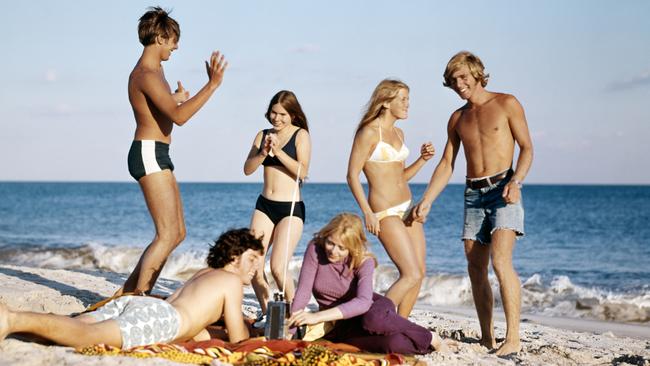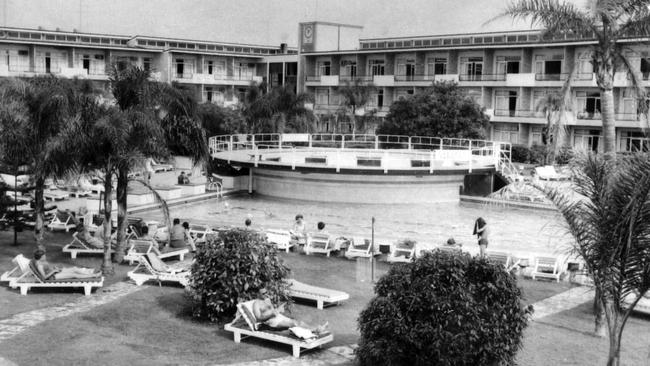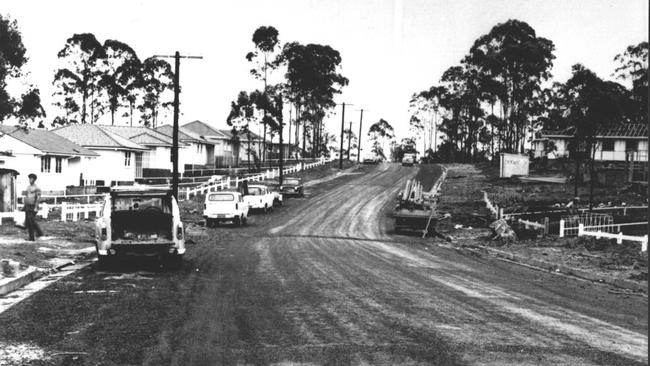”Eventually, our collective thinking changed - but so too did our lifestyle expectations”


We eked out a living by harnessing and adapting to the local environment. A quarter-acre block, even for a Commission house, was sufficient for an extensive vegetable garden. In our rich volcanic soil we grew tomatoes, corn, carrots, potatoes, lettuce and pumpkins. Mint was planted near the outdoor lavatory.
My father built a garage from scavenged timber. One side was weatherboards painted with creosote; the other was covered with the flattened iron of 44-gallon drums cut down with a tomahawk. Building materials were in short supply after the war. Later, a corrugated iron chook house was added. On special occasions my father would select a chook, take it over to the wood heap and chop off its head. This was done in front of all of us kids. The headless chook would be gutted and plucked in the wash-house before being roasted. Delicious!
Wood for the kitchen stove and loungeroom open fire was collected (with permission) by my father from properties just outside town, trucked home, then split and stacked – a job that took several weekends. A large part of my childhood was spent watching my father chop wood. He showed me how the axe must cut with the grain. For some reason we called kindling “morning wood” and it had to be split from larger logs daily throughout winter. The cold could not be bought off; it had to be fought off with daily physical exertion.

My older brothers would go fishing for eels in Mt Emu Creek. They’d set off in the late afternoon carrying a kerosene lamp and a sugar bag to hold the catch, which was gutted and skinned in the wash-house trough. When we holidayed in Port Campbell my father would take all four of his sons fishing off the rocks. Generally we caught a fish called sweep, but one year dad caught crayfish using a cray net off Beacon Steps. And after autumn rains the family would go mushrooming, setting off with an enamelled tin billy and a kitchen knife. The “mushies” we collected could then be added to our tea (dinner), which invariably comprised lamb chops, mashed potatoes, sliced carrots and peas.

Once a month our family of eight piled into our clapped-out Chevrolet and drove 60km to visit dad’s parents in Woolsthorpe. On one of these trips he explained to his kids the appropriate way to throw a bottle from a moving car: it had to be lobbed from the driver’s side up and over the top of the car and onto the verge; if you threw the bottle directly out the window it would be caught in the slipstream and become a hazard to vehicles behind. Different times indeed.
And yet in our own way we were avid environmentalists. We were forever being told to shut the door “to keep the heat in”. Bath water was shared between the kids. Kitchen compost was spread on the garden. In summer we never used a fan; aircon was unknown. Clothes were mended, socks were darned. My mother made dresses for my sisters. Like many people who remembered the Great Depression, she also had a dedicated container for saved string.
There was a naivety about our relationship with the environment decades ago, I think. Eventually, our collective thinking changed, but so too did our lifestyle expectations. I wonder what things we’re doing today will seem naive to the Australians of 2082?



Comparing the way we live today with the 1960s, one thing in particular sticks out. Back then, I think we lived closer to the environment. And by we, I mean me, my parents and five siblings in a small town in Western Victoria.